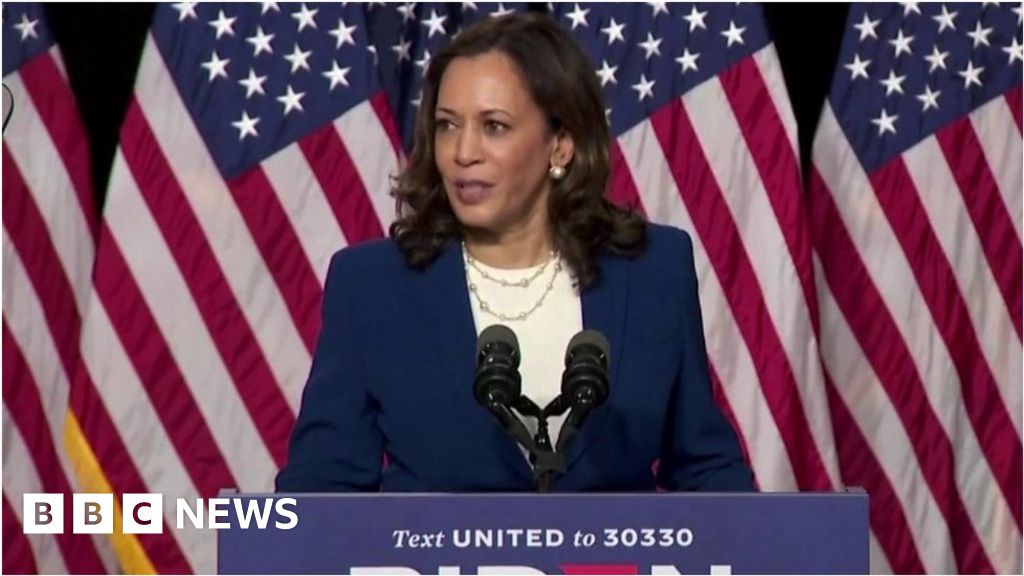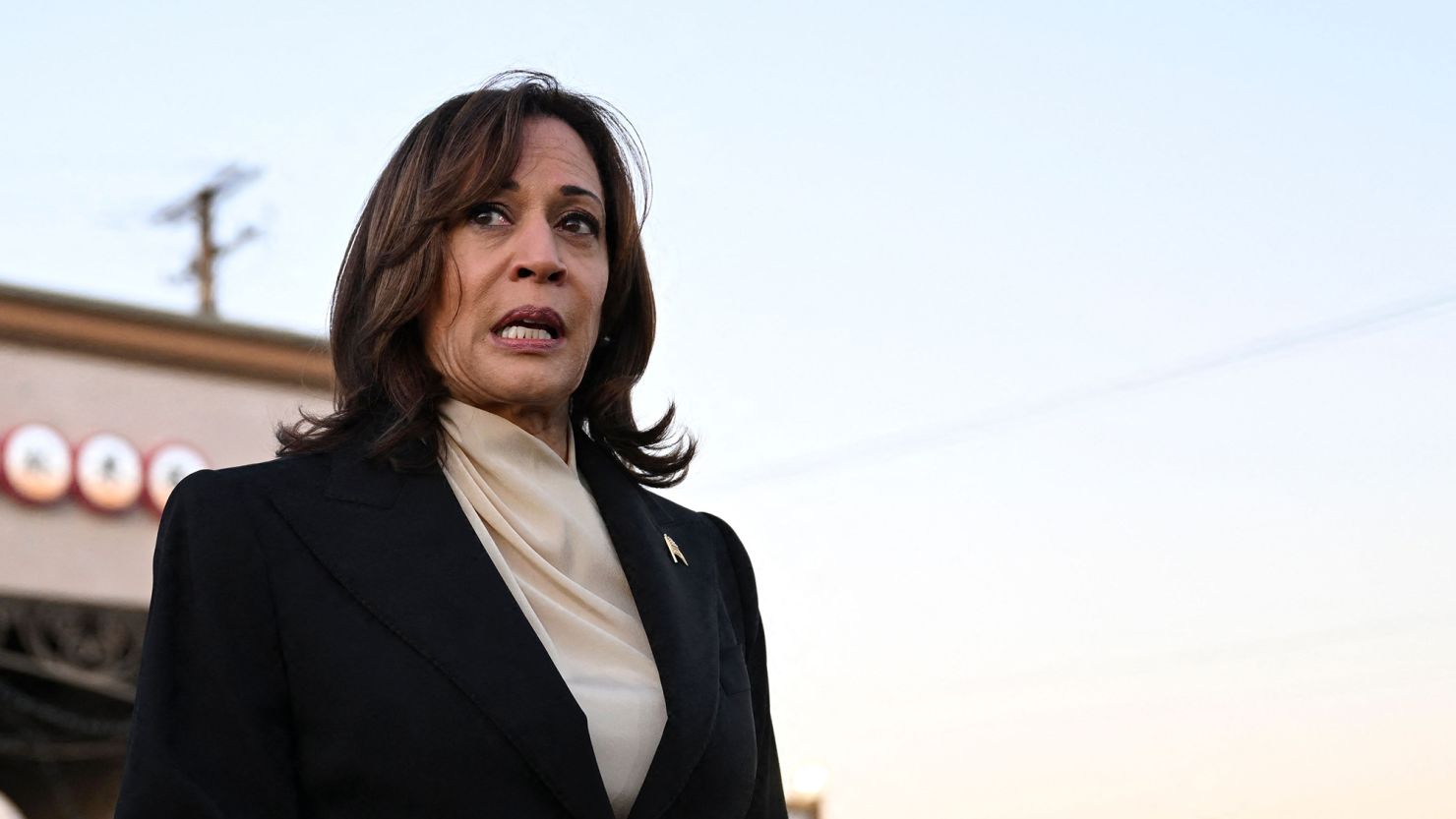Kamala Harris Crying: The Emotional Side Of A Resilient Leader
Picture this: Kamala Harris crying in front of the world. Sounds shocking, right? But let’s get real—emotions are a part of being human, even for one of the most powerful women on the planet. As Vice President of the United States, Kamala Harris carries immense responsibility, and sometimes, the weight of it all becomes visible. In this article, we’ll dive deep into moments where Kamala Harris has shown her vulnerable side, exploring what these moments mean for her leadership and legacy. If you’re curious about the woman behind the title, you’re in the right place.
Now, before we go any further, let’s clear the air. Kamala Harris crying isn’t about weakness—it’s about authenticity. In a world where leaders are often expected to be stoic and unshakable, moments of vulnerability remind us that they’re human too. These moments don’t diminish her strength; they enhance it. They show us that leadership isn’t just about making tough decisions but also about connecting with people on a personal level.
So, why are we talking about Kamala Harris crying? Because it’s a side of her that many don’t see. Sure, she’s a powerhouse politician, but she’s also a daughter, a sister, and a friend. And like anyone else, she has moments when emotions take over. Stick around as we explore these moments, unpack their significance, and learn why they matter.
Read also:Dont Challenge The Lady Billionaire The Untold Story Of Power Wealth And Influence
Table of Contents
- Biography: Who is Kamala Harris?
- Kamala Harris Crying: Emotional Moments in the Spotlight
- The Impact of Vulnerability on Leadership
- Family Ties: How Her Background Influences Her Emotions
- Challenges Faced by Kamala Harris
- Public Perception: How the Media Portrays Kamala Harris Crying
- The Importance of Mental Health in Politics
- Her Support System: Who Stands by Her Side?
- Building a Legacy: What Kamala Harris Represents
- Conclusion: Kamala Harris Crying—Strength in Vulnerability
Biography: Who is Kamala Harris?
Before we delve into Kamala Harris crying, let’s take a step back and get to know the woman behind the title. Kamala Devi Harris was born on October 20, 1964, in Oakland, California. Her parents, both academics, instilled in her a deep sense of justice and equality from a young age. Her mother, Shyamala Gopalan, was a cancer researcher, and her father, Donald Harris, was an economist.
Early Life and Career
Kamala’s early life was marked by activism. Growing up, she participated in civil rights marches and developed a passion for justice. After graduating from Howard University and UC Hastings College of the Law, she began her career as a prosecutor in Alameda County. Her rise in the legal field was meteoric, and she quickly became the District Attorney of San Francisco, followed by the Attorney General of California.
Political Milestones
Her political career took off when she was elected to the U.S. Senate in 2016. From there, she became the first Black woman and the first South Asian woman to serve as Vice President of the United States. Her journey is nothing short of inspirational, and her achievements have paved the way for countless women of color in politics.
Kamala Harris Crying: Emotional Moments in the Spotlight
Alright, let’s talk about the elephant in the room—Kamala Harris crying. It’s not something we see often, but when it happens, it’s significant. These moments are often captured during speeches, interviews, or public events. So, what causes her to shed a tear? Let’s break it down.
Memorable Moments
- Her Inauguration Day: When Kamala Harris was sworn in as Vice President, tears streamed down her face. This moment wasn’t just about her—it was about the millions of women and minorities who saw a piece of themselves in her.
- Gun Violence Speech: During a speech on gun violence, Kamala Harris couldn’t hold back her emotions. Her personal connection to the issue, combined with the heart-wrenching stories of victims, moved her to tears.
- Family Loss: The passing of her mother and other close relatives has been a source of deep emotional pain for Kamala. In public appearances, she’s often been seen emotional when speaking about her family.
The Impact of Vulnerability on Leadership
Now, here’s the thing—vulnerability isn’t a weakness; it’s a strength. When Kamala Harris cries in public, it doesn’t make her less of a leader. In fact, it makes her more relatable. People connect with leaders who aren’t afraid to show their emotions. It’s a reminder that leadership isn’t just about making tough decisions—it’s about understanding the human experience.
Why Vulnerability Matters
Studies show that leaders who display vulnerability are perceived as more trustworthy and authentic. It’s not about being perfect; it’s about being real. Kamala Harris crying in front of the world is a powerful reminder that even the most powerful people have feelings. And that’s okay.
Read also:New Belgium Asheville Flooding A Deep Dive Into The Impact And Resilience
Family Ties: How Her Background Influences Her Emotions
Kamala Harris’s family plays a significant role in shaping who she is today. Her mother, Shyamala Gopalan, was a trailblazer in her own right, and Kamala often speaks about the lessons she learned from her. The loss of her mother and other family members has undoubtedly influenced her emotional responses.
Key Family Members
| Name | Relation | Profession |
|---|---|---|
| Shyamala Gopalan | Mother | Cancer Researcher |
| Donald Harris | Father | Economist |
| Maya Harris | Sister | Policy Advocate |
Challenges Faced by Kamala Harris
Let’s not sugarcoat it—Kamala Harris has faced her fair share of challenges. From criticism in the media to personal struggles, she’s had to navigate a complex landscape. But through it all, she’s remained resilient. Her ability to stay grounded while dealing with immense pressure is a testament to her strength.
Overcoming Adversity
One of the biggest challenges Kamala Harris has faced is the scrutiny from the media. Every move she makes is analyzed, and every word she says is dissected. But instead of letting it get to her, she’s used it as fuel to drive her forward. Her emotional moments, like Kamala Harris crying, are a reminder that she’s not just a politician—she’s a person.
Public Perception: How the Media Portrays Kamala Harris Crying
The media has a knack for sensationalizing everything, and Kamala Harris crying is no exception. Some outlets portray these moments as signs of weakness, while others see them as a display of authenticity. The truth lies somewhere in the middle. Kamala Harris crying isn’t about being weak—it’s about being human.
Changing Narratives
As society evolves, so does our perception of leadership. We’re moving away from the idea that leaders need to be stoic and unemotional. Instead, we’re embracing the idea that leaders can be vulnerable and still be effective. Kamala Harris crying is a perfect example of this shift.
The Importance of Mental Health in Politics
Mental health is a critical issue, especially in the world of politics. Leaders like Kamala Harris are under constant pressure, and it’s essential that they have the support they need to stay mentally healthy. Kamala Harris crying is a reminder that even the strongest among us need a moment to breathe.
Breaking the Stigma
By showing her vulnerable side, Kamala Harris is helping to break the stigma surrounding mental health. She’s proving that it’s okay to seek help and that emotions are a natural part of life. Her leadership style is a testament to the fact that strength comes in many forms.
Her Support System: Who Stands by Her Side?
No one succeeds alone, and Kamala Harris is no exception. She has a strong support system that includes her husband, Doug Emhoff, her sister, Maya Harris, and countless other friends and allies. These people play a crucial role in keeping her grounded and helping her navigate the challenges of her position.
Key Supporters
- Doug Emhoff: Kamala’s husband is a constant source of support and encouragement. His role as the “Second Gentleman” has been a game-changer for both of them.
- Maya Harris: Kamala’s sister is not only her confidante but also a fellow advocate for social justice.
Building a Legacy: What Kamala Harris Represents
Kamala Harris’s legacy is already taking shape, and it’s one of breaking barriers and paving the way for future generations. Her journey from a young activist to Vice President of the United States is a testament to the power of perseverance and resilience. Kamala Harris crying is just one aspect of her humanity, and it’s a reminder that she’s not just a leader—she’s a role model.
What She Stands For
Kamala Harris represents hope, equality, and justice. She’s a trailblazer who has shattered glass ceilings and inspired millions around the world. Her emotional moments, like Kamala Harris crying, are a reminder that leadership is about more than just policy—it’s about people.
Conclusion: Kamala Harris Crying—Strength in Vulnerability
As we wrap up this article, it’s clear that Kamala Harris crying isn’t about weakness—it’s about strength. It’s about being real, being vulnerable, and being human. In a world where leaders are often expected to be perfect, Kamala Harris reminds us that perfection isn’t the goal. Authenticity is.
So, the next time you see Kamala Harris crying, don’t see it as a moment of weakness. See it as a moment of truth. See it as a reminder that even the most powerful among us are human. And most importantly, see it as a lesson in leadership—true leadership is about connecting with people, not just commanding them.
Now, it’s your turn. What do you think about Kamala Harris crying? Do you see it as a sign of strength or weakness? Share your thoughts in the comments below, and don’t forget to share this article with your friends. Together, let’s keep the conversation going.


